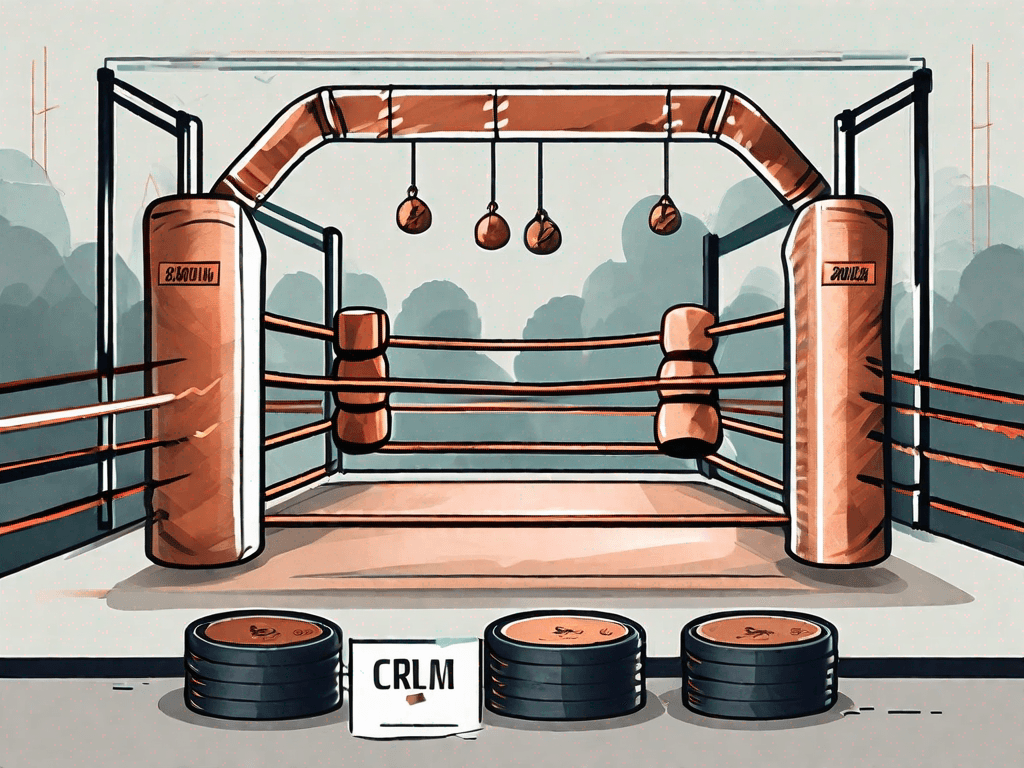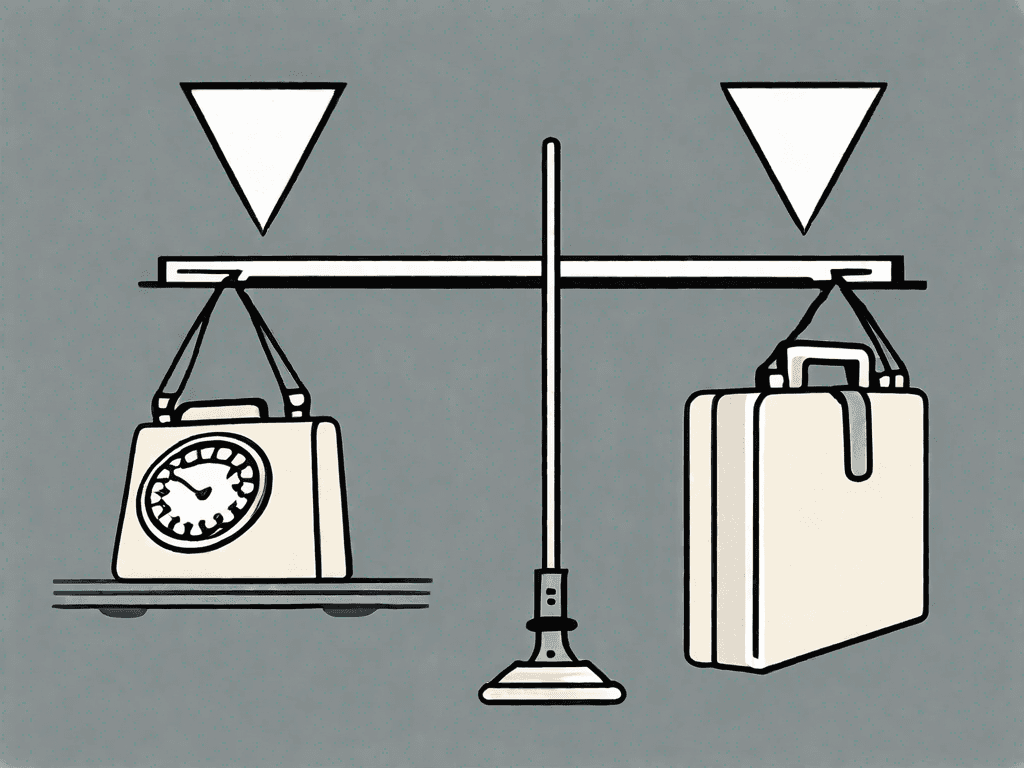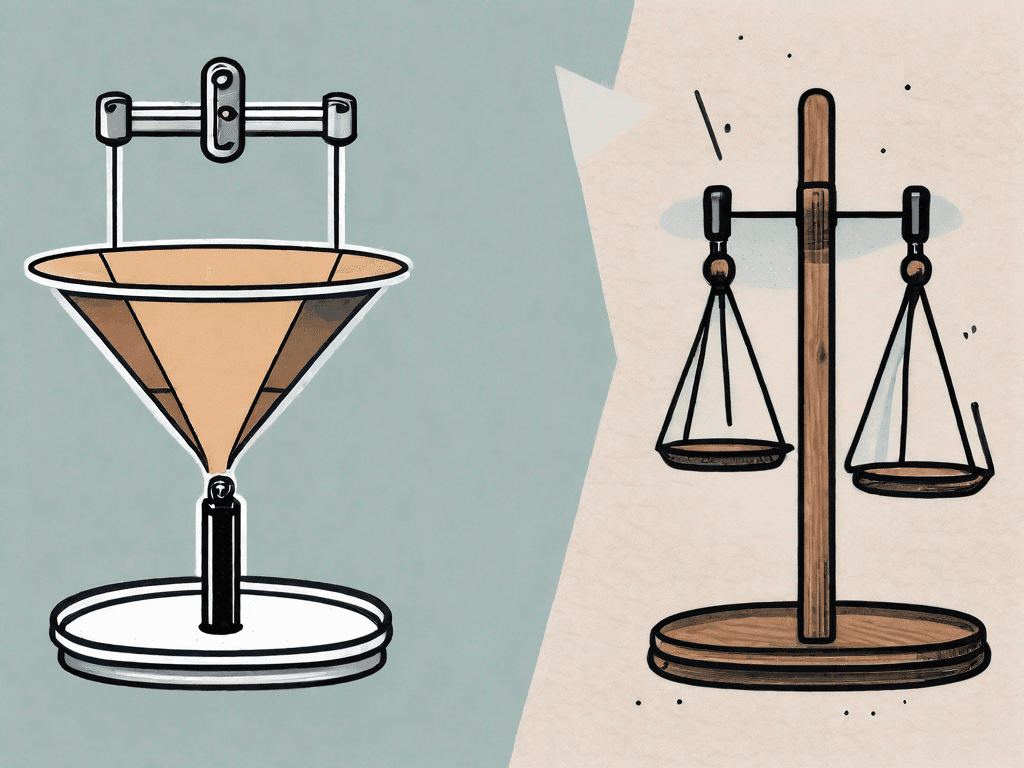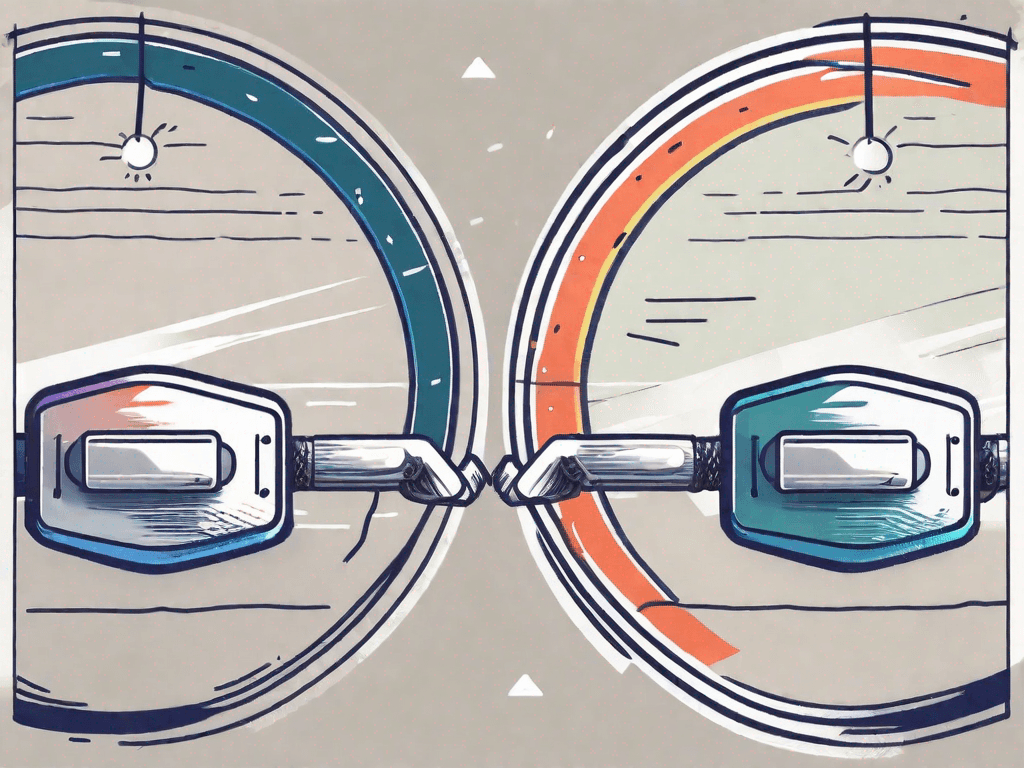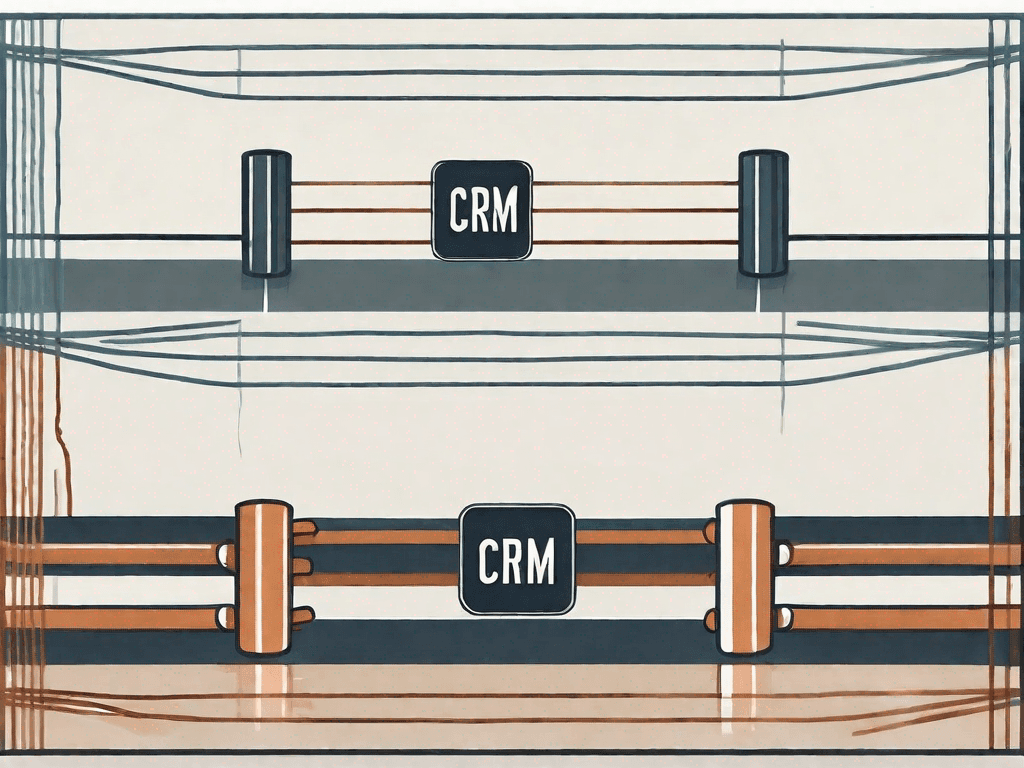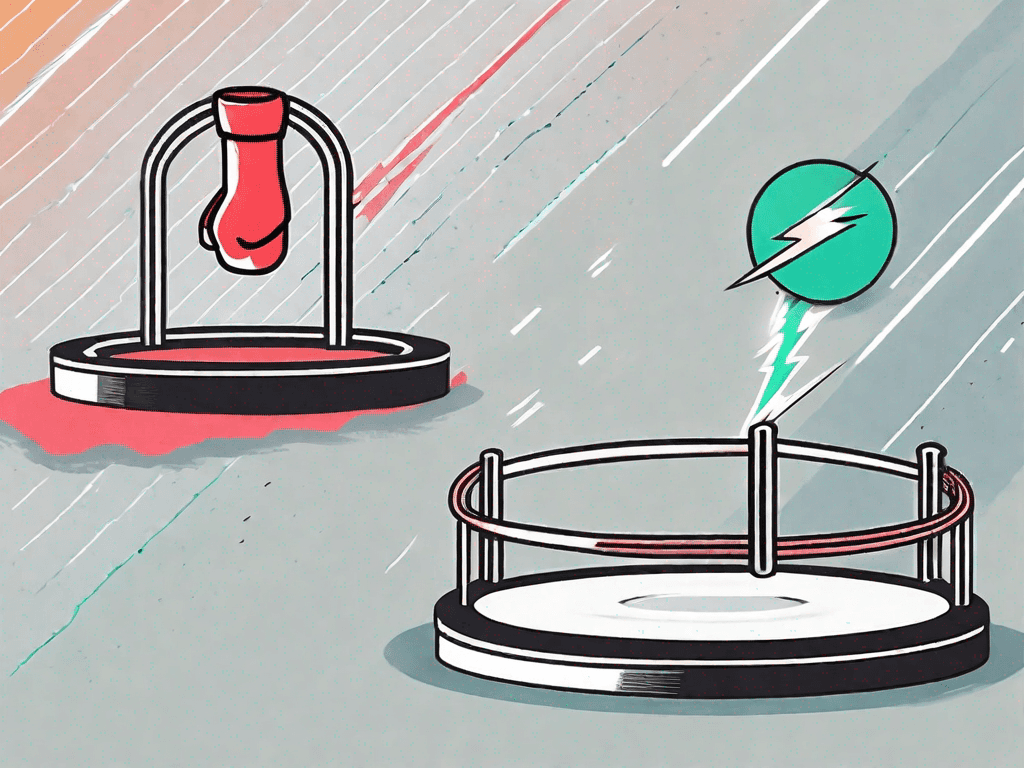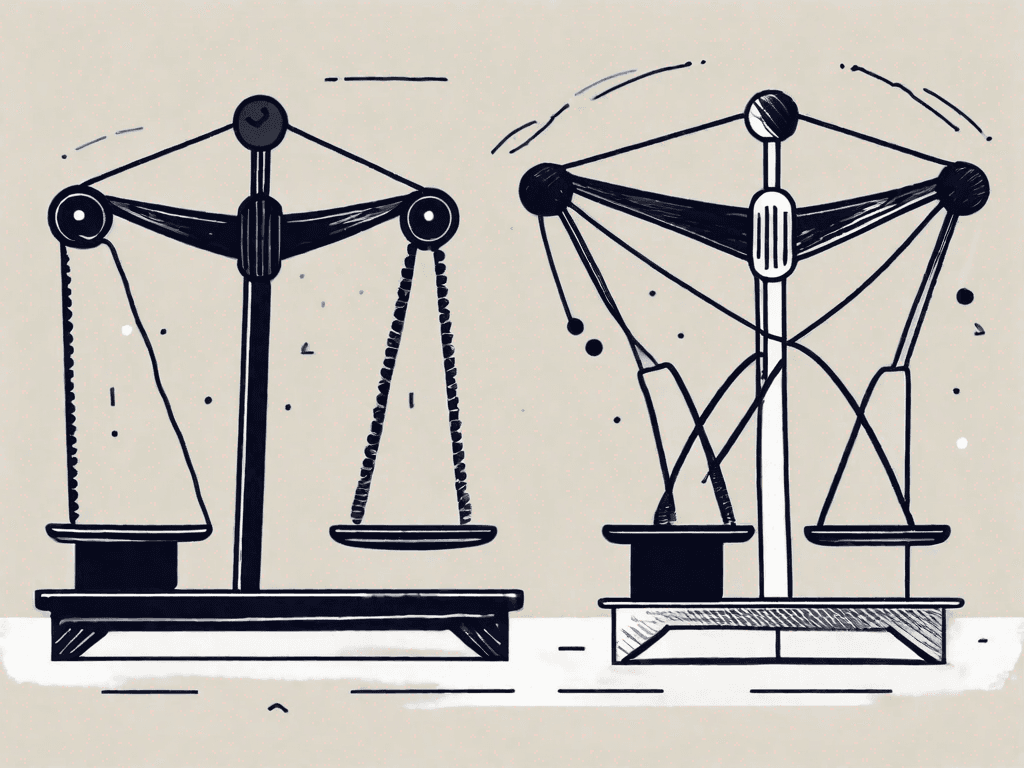
Salesforce vs Salesmate: Which CRM is the Best?
When it comes to choosing a customer relationship management (CRM) system for your business, there are plenty of options available. Two popular choices are Salesforce and Salesmate. In this article, we will compare the pros and cons of these two CRM platforms, discuss their pricing models, explore their integrations, and help you determine which one is the best fit for your specific needs
Pros and Cons of Salesforce and Salesmate
Before diving into the details of each CRM, let's take a look at the general advantages and disadvantages of Salesforce and Salesmate.
When it comes to choosing a CRM for your business, it's important to consider the pros and cons of different options. Salesforce and Salesmate are two popular CRM solutions that offer unique features and benefits. Understanding the strengths and weaknesses of each can help you make an informed decision.
1.1 Pros of Salesforce
One of the main benefits of Salesforce is its extensive set of features. From lead management and opportunity tracking to analytics and reporting, Salesforce offers a comprehensive suite of tools to manage your sales pipeline.
With Salesforce, you have access to a wide range of functionalities that can help streamline your sales processes and improve overall efficiency. Whether you need to track customer interactions, manage sales forecasts, or automate repetitive tasks, Salesforce has you covered.
Another advantage of Salesforce is its robust customization options. With its flexible architecture, you can tailor the system to meet your specific business requirements. Whether you need to create custom fields, workflows, or dashboards, Salesforce provides the flexibility to adapt the CRM to your unique needs.
1.2 Cons of Salesforce
Despite its strengths, Salesforce has a steeper learning curve compared to Salesmate. The complexity of the platform may require additional training for your team members to fully utilize its capabilities.
Moreover, Salesforce can be more expensive compared to other CRM solutions on the market, especially for small businesses with limited budgets. The cost of licenses, implementation, and ongoing maintenance can add up, making it a less affordable option for some businesses.
1.3 Pros of Salesmate
Salesmate is known for its user-friendly interface and intuitive design. It offers a simpler and more straightforward user experience, making it easier for your team to quickly adopt and start using the CRM.
With Salesmate, you can expect a smooth onboarding process and minimal training requirements. The intuitive interface allows your team to navigate the CRM effortlessly, saving time and reducing the learning curve.
Furthermore, Salesmate provides a range of automation features that can streamline your sales processes and save time for your sales team. From automated lead assignment and follow-ups to email templates and workflow automation, Salesmate offers tools to automate repetitive tasks and improve productivity.
1.4 Cons of Salesmate
While Salesmate offers a solid set of features, it may not have the same level of customization options as Salesforce. This could be a limitation for businesses with unique needs or complex sales processes.
Additionally, Salesmate's reporting capabilities may not be as robust as those of Salesforce, which could be a drawback for businesses that heavily rely on data-driven insights. If your business requires in-depth analytics and advanced reporting functionalities, Salesmate may not be the ideal choice.
1.5 Key Differences between Salesforce and Salesmate
There are several key differences between Salesforce and Salesmate that can impact your decision-making process. Salesforce caters to businesses of all sizes, from small startups to large enterprises. In contrast, Salesmate primarily targets small and mid-sized businesses.
In terms of scalability, Salesforce with its extensive ecosystem and app marketplace offers more room for growth and customization compared to Salesmate. If your business has complex requirements or plans for expansion, Salesforce may be a better fit.
On the other hand, Salesmate has a more affordable pricing structure compared to Salesforce, making it a viable option for businesses looking for a cost-effective CRM solution. If budget is a major consideration for your business, Salesmate may be the more suitable choice.
How does Salesforce pricing compare to Salesmate?
One crucial aspect to consider when choosing a CRM is the pricing. Let's take a closer look at the pricing models of Salesforce and Salesmate.
2.1 Salesforce Pricing
Salesforce offers various pricing plans to cater to different business needs. The pricing tiers include Essentials, Professional, Enterprise, and Unlimited. The cost increases as you move up the tiers, with Enterprise and Unlimited plans providing more advanced features and capabilities.
2.2 Salesmate Pricing
Salesmate also offers multiple pricing plans, including Starter, Growth, and Professional. Each plan comes with different features and limitations. Salesmate's pricing is generally more affordable compared to Salesforce, making it an attractive option for budget-conscious businesses.
2.3 Pricing Comparison
When comparing the pricing of Salesforce and Salesmate, it's important to consider your business size, specific requirements, and budget. Salesforce may be a better fit for larger businesses that can leverage its extensive feature set, while Salesmate could be a cost-effective choice for small and mid-sized businesses.
How do Salesforce integrations compare to Salesmate?
Integrations with other tools and platforms are crucial for maximizing the functionality and efficiency of your CRM system. Let's explore the integrations available for Salesforce and Salesmate.
3.1 Salesforce Integrations
Salesforce offers a vast array of integrations with popular business tools, such as marketing automation platforms, customer service software, and email marketing services. This integration ecosystem allows seamless data flow and enhances your ability to connect Salesforce with other systems in your tech stack.
3.2 Salesmate Integrations
Salesmate also provides integrations with various tools and services, including email clients, communication platforms, and productivity apps. While its integration options may not be as extensive as Salesforce, Salesmate covers the essential integrations needed for smooth collaboration and productivity.
Which one is the Best for You?
Now that we've discussed the pros and cons of Salesforce and Salesmate, let's determine which CRM is the best fit for different types of businesses.
4.1 The Best for Salespeople
If you have a large sales team and require advanced features, Salesforce would be an excellent choice. Its extensive customization options and robust functionality make it the go-to CRM for businesses with complex sales processes.
On the other hand, Salesmate's user-friendly interface and affordability make it an attractive option for individual salespeople or small sales teams who prioritize simplicity and cost-effectiveness.
4.2 The Best for Consultants
Consultants who primarily focus on client relationship management would benefit from Salesforce's broad set of features and its ability to handle complex customer interactions. The scalability and customizability of Salesforce can support consultants in managing multiple clients and tracking their unique requirements.
For consultants with simpler CRM needs or smaller client bases, Salesmate would provide ample functionality at a more affordable price point.
4.3 The Best for Digital Marketing Agencies
Digital marketing agencies often require seamless integration between their CRM and other marketing tools, such as email marketing platforms or social media management software. In this case, Salesforce's vast integration ecosystem can provide the necessary connectivity and data sync capabilities for comprehensive campaign management.
For smaller digital marketing agencies with more streamlined needs, Salesmate's integration options can still cover the essential tools required for efficient client management and communication.
Conclusion
In conclusion, both Salesforce and Salesmate offer distinct advantages and cater to different business needs. Salesforce excels in its extensive features, customization options, and scalability, but it comes with a higher price tag and a steeper learning curve. On the other hand, Salesmate offers a user-friendly interface, affordability, and simplicity, but with fewer customization options and a potentially more limited feature set.
When choosing between Salesforce and Salesmate, it's crucial to consider your business size, specific requirements, budget, and the level of complexity in your sales processes. By carefully evaluating these factors and aligning them with your business goals, you can make an informed decision on which CRM is the best fit for your organization.











![The 8 Best Social CRM Software in 2025 [Comparison]](https://framerusercontent.com/images/RYHyYapdgIi83BEWtMdX418.png)
![The 6 Best LinkedIn CRM in 2025 [Comparison]](https://framerusercontent.com/images/Luywfni7ZKjb19yghbhNPy4I4qQ.png)



![The 5 Best Twitter CRM [Comparison]](https://framerusercontent.com/images/EWcbvYnVZglJLO8jp3OlHkTvsHo.png)
































































































































































